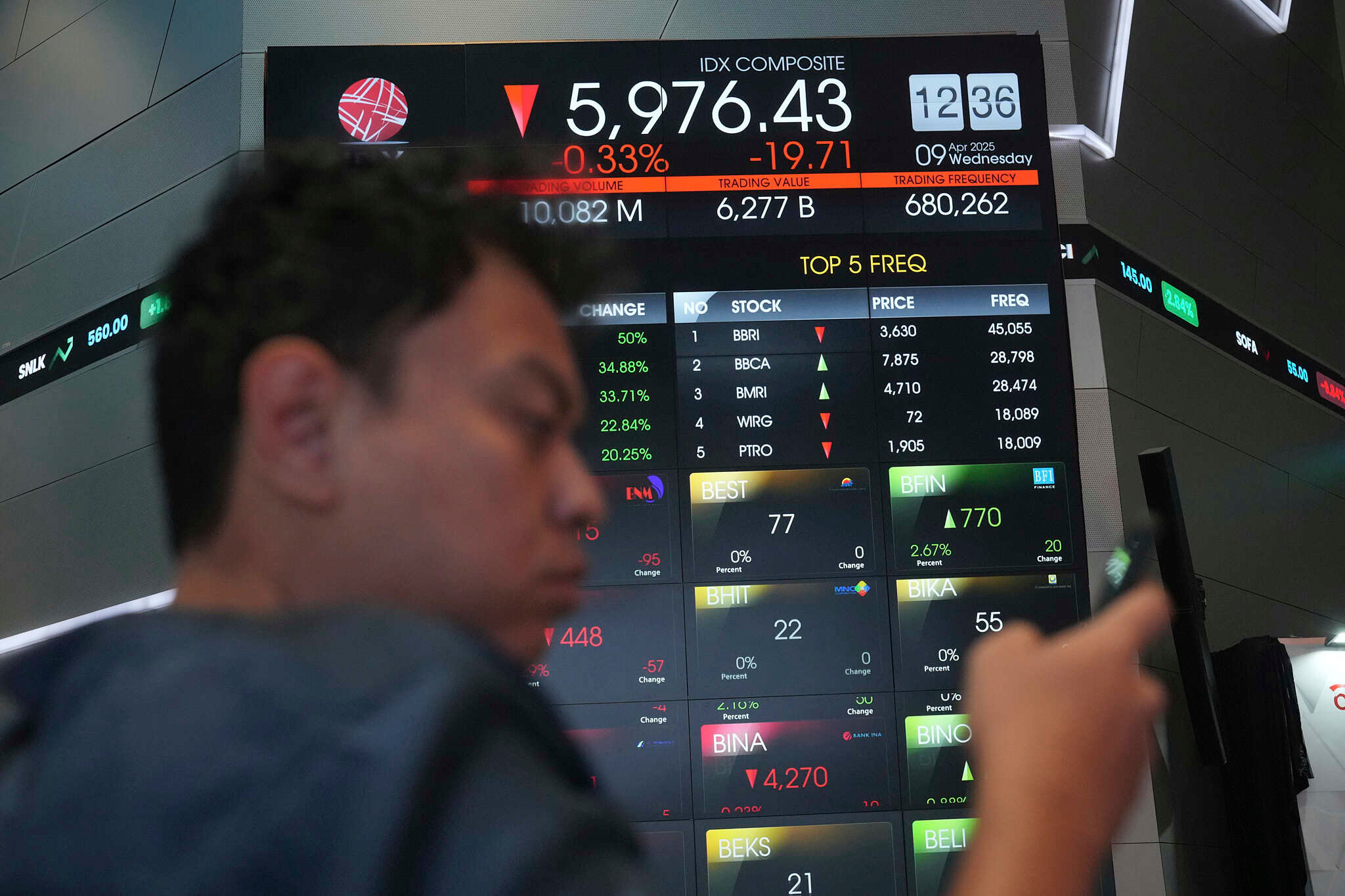How far can the stock market crisis go without harming the financial sector? That is the million-dollar question. At the moment, it does not seem that any financial institution - bank, insurer, or fund - has suffered a disruption after the collapse of the stock market triggered by Trump's tariffs. But if there is something that characterizes financial crises, it is that they do not give warnings.
With the leverage (mainly debt-financed purchases) of many large funds and the proliferation of private credit - about which the International Monetary Fund raised the alarm a year ago - the possibilities of some entity causing a scare increase every day. And, given the interconnectedness of the global financial market, its repercussions can reach far. Two years ago, the collapse of the Californian bank Silicon Valley Bank due to a mere rise in interest rates in the US ended up taking down Credit Suisse, one of the two major Swiss banks.
Uncertainty is precisely one of the elements that are most damaging to the stock markets. The tariffs have been so brutal and future expectations so uncertain - 104% import taxes on Chinese imports?; cuts to the rates imposed on Japan and perhaps South Korea? - that there is not a single forecast of corporate earnings reduction. The teleconferences that will follow this month after the first-quarter earnings presentations promise to be a festival of anxieties and terrors.
For now, the greatest fears are concentrated in the so-called "shadow financial sector," that is, unregulated, such as private equity funds and hedge funds. This has been especially visible in the case of private equity funds, a sector that has around four trillion dollars in investment, including giants like Blackstone, famous in Spain for its controversial real estate operations, or KKR, the only financial entity that inspired a best-seller and a Hollywood movie, significantly titled Barbarians at the Gate. Both were hammered on Thursday and Friday in the stock market, with 15% drops. Many of these entities are experiencing capital withdrawals from their largest clients, such as pension funds and offices managing the gigantic endowments of universities.
The problem for these funds - and the funds that invest in them - is that they had envisioned a dreamy 2025, thanks to four elements: more financial deregulation and downsizing of supervisors by Trump; an unstoppable rise in the stock markets; a wave of mergers and acquisitions; and a cascade of IPOs. Of the four elements, only the first has been fulfilled.
This has left many entities with an unexpectedly devalued stock portfolio, without the possibility of earning commissions in mergers, and with stakes in companies that were supposed to go public this year but, given the market conditions, will not. The value of unlisted companies is updated quarterly, but that of listed companies is public and changes every day (and in recent days, it only changes to decrease). In addition, many investors entered the capital of these unlisted companies with loans, often secured by the securities of the listed companies. Now, these guarantees may be worth 30% less than when the loans were granted. In these cases, this is when what the Anglo-Saxons call a margin call occurs - which is another movie, this time with Kevin Spacey and Jeremy Irons - where the creditor demands more guarantees (or, in financial jargon, collateral). As far as is known, this is not happening. If it does, that is when the alarms start to go off.
In this crisis, there are also other factors of uncertainty. One is the proliferation of so-called private credit, which according to the IMF reaches two trillion dollars (almost 1.9 trillion euros) and is not at all transparent: no one knows well who has it, or under what conditions it is granted, although it usually ends up with large companies, financial institutions, and also high-yield debt, that is, the riskiest. Besides, there is the fact that, contrary to what is usually the case in crises, the dollar is not rising. This has surprised many experts, who do not know how to interpret it, and for some, it could be a sign of capital distrust in the Trump administration or even the loss of the dollar's status as a safe haven. Either way, it is gold that is benefiting from the crisis.
For Wall Street, Trump has been a disappointment. American financiers had bet on him and his promises of deregulation and low taxes. Added to this was a certain sympathy for the guy who could give them back what one of them anonymously referred to the Financial Times as "a certain sense of freedom," understood as being able to call someone "stupid," or make sexual jokes without anyone raising the principles of political correctness or sexism.
All that unleashed testosterone, which was going to make the bottom line skyrocket, has deflated with the cold water of Trump's tariffs. No one believed his protectionist promises. Financiers stuck to the experience of the president's first term when he gave them free rein and only imposed trade barriers in specific sectors, such as steel and aluminum. Everyone bought into the idea that the only indicator that matters to Trump is the S&P500, that is, the index of large US companies. The unanimous idea was that Trump was going to govern for the stock market, just like between 2017 and 2021. Now, that has changed. Even Bill Ackman of the hedge fund Pershing Square, who was one of Trump's biggest supporters, is talking about "a nuclear winter" for the global economy due to the tariffs.
